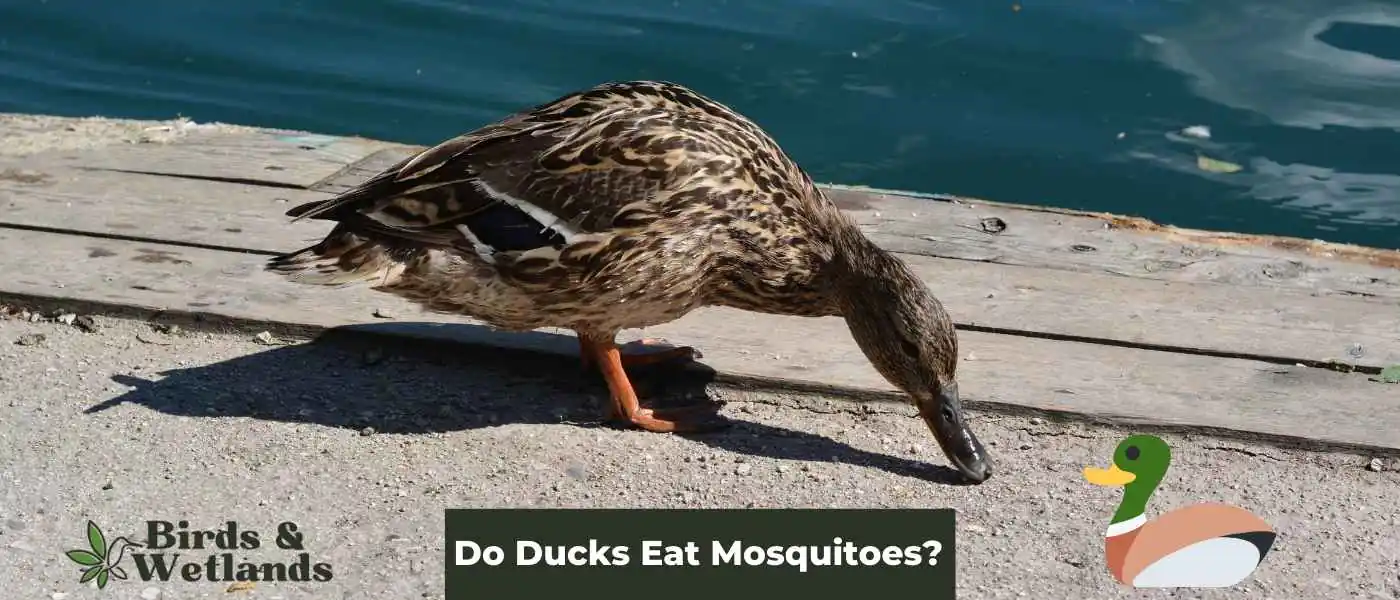Are you tired of pesky mosquitoes ruining your outdoor activities?
Did you know that ducks might just be your secret weapon?
It turns out that ducks love to eat mosquitoes and other insects, making them a natural and eco-friendly pest control solution. But just how effective are ducks at mosquito control, and what other benefits do they provide?
Do ducks eat mosquitoes?
Yes, ducks eat mosquitoes, particularly their larvae, as they are a natural part of their diet. Ducks consume various insects and invertebrates, including mosquitoes, while foraging for food in aquatic environments. Feeding on mosquito larvae can help control mosquito populations and provide ducks with essential proteins and nutrients for their overall well-being.
Key Takeaways on Ducks and Mosquitoes
- Ducks love to eat mosquitoes and other insects, which makes them helpful in controlling mosquito populations.
- While ducks can eat mosquitoes, they should not be relied upon as the sole means of mosquito control as they only eat a small percentage of the total mosquito population.
- Providing a duck-friendly habitat with access to water, vegetation, and insects can encourage wild ducks to stick around and eat more mosquitoes.
- It’s important to ensure that the ducks are not ingesting any harmful chemicals or pesticides, as these can harm the ducks and potentially make them sick.
- Various breeds of ducks are considered nature’s mosquito control. A duck’s ability to devour large quantities of insects, including water-borne pests such as mosquito larvae is pretty well known.
Do Muscovy Ducks Eat Mosquitoes and Mosquito Larvae?
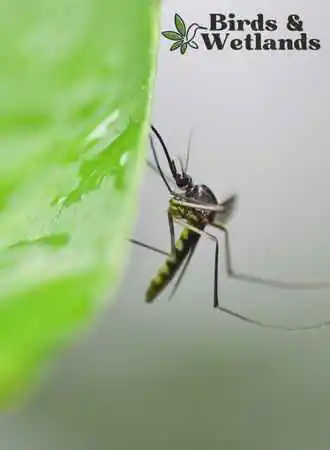
The Muscovy ducks have a unique appetite; they love to eat the non-feeding pupa stage of the mosquitoes. While most animals and birds will only eat the larvae or adult forms of these insects, the Muscovy duck has developed a taste for the pupae stage.
Do Ducklings Eat Mosquitoes?
It is possible for ducklings to eat mosquitoes and their eggs as well as mosquito pupae, although they are not necessarily the preferred food source. Ducklings will typically eat whatever insects are available, and mosquitos can make up a small part of their diet.
Can Mosquitos Harm Ducks?
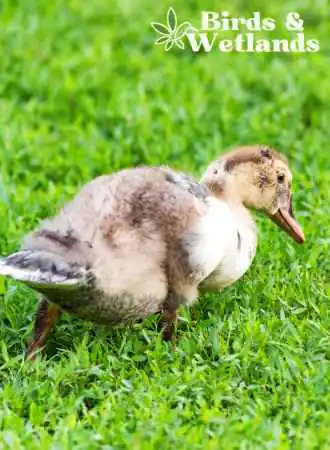
Mosquitos are well-known carriers of parasites, which can cause various harmful effects in ducks. When a mosquito bites a duck, the troublesome parasite enters the intermediate host or duck’s bloodstream and begins to multiply.
In some cases, parasites block the duck’s arteries, causing heart disease. In other cases, the parasites can cause anemia or liver damage. In severe cases, the parasites can be fatal.
Can Ducks Help Solve Pest Problems?
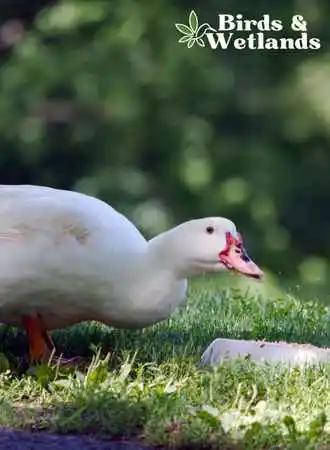
Ducks can be a very effective form of pest control. Their diet consists of insects, which means they can help to reduce insect populations in an area. This can be especially beneficial in a vegetable garden, where insect control is essential for healthy plant growth.
In addition, ducks can also help to control slug populations. Slugs are a common garden pest that can damage plants, and their slimy bodies can be difficult to remove. Ducks enjoy eating slugs, and they will gladly clean up your garden for you.
Ducks and free-range chickens can make a huge difference in pest control. So if you’re exploring creative solutions for pest or slug control consider getting ducks. Hopefully, you’ll never have to end up drowning slugs anymore.
FAQs on Ducks Eating Winged Insects
Do Mosquitoes Carry Diseases That Affect Avian and Mammalian Species?
Yes, mosquitoes can carry diseases that affect both humans and animals. Some diseases that mosquitoes can transmit include the West Nile virus, malaria, dengue fever, and chikungunya. These diseases can cause severe illness and even death in humans and animals.
Mosquitoes are considered one of the most dangerous pests in the world because of their ability to spread these diseases.
Do Mosquitoes Lay Eggs in the Water?
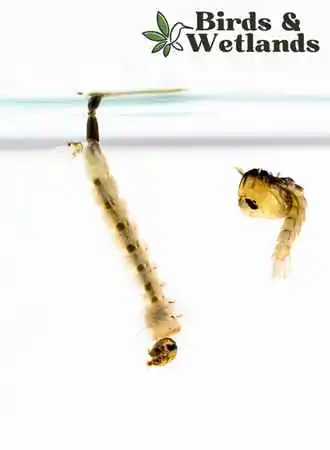
Mosquitoes are tiny, flying insects well-known for their role in transmitting diseases such as malaria and West Nile Virus.
While the adult mosquitoes that carry these diseases can fly long distances, they typically lay their eggs in standing water. These locations can include anything from ponds and marshes to rain puddles and even birdbaths.
The eggs hatch into larva, which develops into adults in about two weeks. Once the adult mosquitoes emerge, they search for a mate and a blood meal.
Other Foods for Ducks
Wondering what else to feed ducks to give them a perfect diet?
Best Duck Feed Pellets
Are you a duck owner looking for the perfect feed to keep your feathered friends happy and healthy? Look no further than Purina Duck Feed Pellets! With their nutritionally balanced formula and high-quality ingredients, these pellets are the ultimate solution for providing your ducks with the nutrition they need to thrive.
Pros
- Complete Nutrition: Purina Duck Feed Pellets are nutritionally balanced to provide all the essential vitamins and minerals that ducks need to stay healthy and strong.
- Easy to Digest: The pellets are specially formulated to be easy to digest, which makes them ideal for ducks of all ages.
- Promotes Growth and Development: With its balanced nutrition formula, Purina Duck Feed Pellets are designed to support healthy growth and development in ducks.
- Suitable for All Breeds: Whether you have domestic ducks or wild ducks, Purina Duck Feed Pellets are suitable for all breeds of ducks.
- Trusted Quality: Purina has been producing high-quality animal feed for over 100 years, so you can trust that your ducks are getting the best possible nutrition with Purina Duck Feed Pellets.
Cons
- Cost: Compared to other types of duck feed on the market, Purina Duck Feed Pellets can be slightly more expensive. However, many customers feel that the high-quality ingredients and balanced nutrition formula are worth the extra investment.
- Pellet Size: Some customers have noted that the pellet size of Purina Duck Feed Pellets can be quite large, which may not be suitable for smaller or younger ducks. However, many customers have reported that the pellets can easily be broken up or soaked in water to make them easier to eat.

